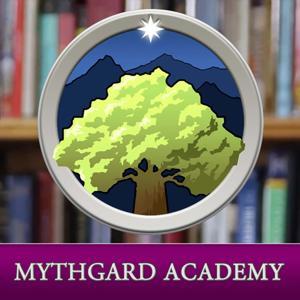This recording from September 1, 2025.
Signum University presents Thesis Theater with Bronwyn Rivera on Monday, September 1, 2025 at 11 am ET.
From psychology to film theory, ecocriticism to posthumanism, anime studies have flourished as scholars investigate the medium through a variety of interdisciplinary lenses. In particular, academics are examining relationships between pilgrimage and tourism to anime/anime-adjacent sites, how anime plotlines reflect or reject narrative archetypes, or how specific anime subgenres lend themselves to telling stories of recovery and change. However, texts related to the study of pilgrimage within anime are limited in scope. As such, pilgrimage structures are typically paired with anime-related tourism rather than investigating how anime reflects the motives, processes, and outcomes of pilgrimage. Using Kyoto Animation’s 2018 series Violet Evergarden (ヴァイオレット・エヴァーガーデン) as a case study, this thesis aims to bridge the gap and demonstrate how an anime can function as a pilgrimage narrative. Based on Laing and Frost’s three-stage model, the thesis is divided into three main categories: Departure, Transformation, and Return. Within these categories are smaller sections that examine the literal, emotional, and spiritual facets of pilgrimage found throughout Violet Evergarden. Additionally, this thesis provides insight into components of Japanese culture and literary devices, specifically ningyō (“doll”) culture and iyashikei (lit. “healing type”), both of which contribute to a deeper understanding of who Violet is as a protagonist and the journey she takes from ex-child soldier to Auto Memories Doll.
Bronwyn Rivera lives with her family, a cat, a dog, and a host of livestock on their small homestead in Pennsylvania. She received her BSc in Liberal Studies with a concentration in Library Science, but chose to pursue her love for writing and literature at the Master’s level through Signum University. Along the way, she discovered a passion for East Asian languages, media, and popular culture, which ultimately influenced her thesis topic. Bronwyn works as a Research/Teaching Assistant, volunteers as Signum’s Library Research Student Aide, and enjoys multiple hobbies, including reading, baking, and getting lost in (J)RPGs.
About Signum Thesis Theaters:
Each of our master’s students writes a thesis at the end of their degree program, exploring a topic of their choice. The Thesis Theater is their opportunity to present their research to a general audience, and answer questions. All are welcome to attend!
Learn about Signum University’s mission, leadership and more: https://signumuniversity.org/about/.
Registration for Fall 2025 is open until September 5th! To view a list of our upcoming MA courses: https://signumuniversity.org/degree-programs/graduate/upcoming-courses/
To learn more about Signum's rigorous academic graduate program: https://signumuniversity.org/degree-programs/graduate/ma-in-language-and-literature/
Want to enjoy Signum’s educational offerings? Start here! https://signumuniversity.org/non-degree-programs/
Support The Signum Scene

































